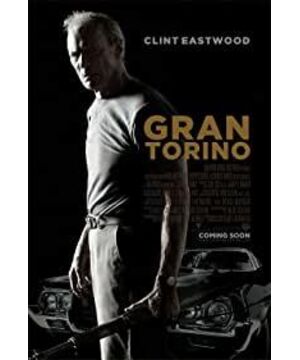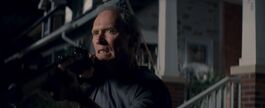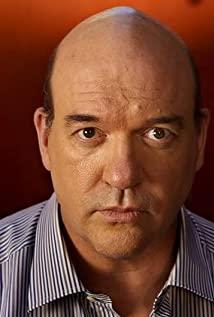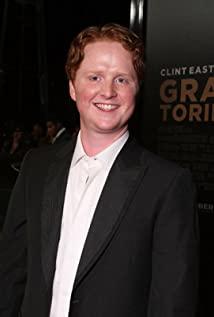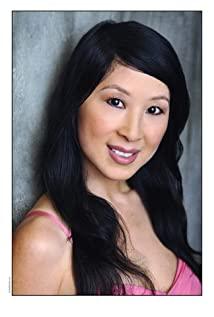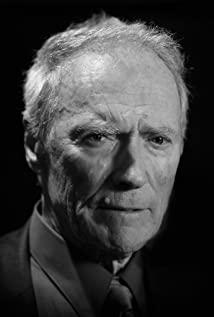"Classic Car" is like a curtain call movie, and even chose to die in the way of curtain call, which may imply that Eastwood as an actor has died, but his life as a director will continue. For him, holding a gun and holding a camera is a way of fighting. No matter how different the two ways may be, the word "smart" has already said goodbye to him. "Unforgivable" witnessed the old age of the former, "Master". "Che" describes the vicissitudes of the latter. In his later years, Eastwood pursued a free creative mode, but it was too casual and sloppy, and he had a failure like "Suspicious Clouds". On the contrary, "Classic Car" was deeply branded with life, and finally he was able to Refined without hurting.
Thinking that "Classic Car" is reshaping life, I also understand why the story takes place in such a remote town, where there is no hustle and bustle of electronic scenes, not even mobile phone signals, only a kind of desolation and loneliness. The Far West was the beginning of Eastwood's actor's career, and it was still in Sergio Leone's films, and now, more than half a century later, everything has been gone. The aged cowboy could no longer pull out the pistol from his waist. Facing the provocation of the outdoor hooligan, he could only use his finger to gesture with the gun. The portion is still the majesty condensed around the eyes.
It is still a majesty that can shoot flames. It lets you know what is the blood of a cowboy and what is the ferocity of a returnee from the South Korean battlefield. The characters in the film tell the killing of the Pacific battlefield time and time again - it is not so much a fighter The glory of it is better to say that it is the pride of the ancestors. The first half of the film has been struggling with this kind of personal and environmental struggle, too slow and too noisy. In fact, there is still a problem with Eastwood's rhythm. The casualness of creation conflicts with the rigor of production. In view of the emergence of this kind of problem, the latter part of the film is full of twists and turns, and the plot turns to Eastwood's familiar play path - the psychological struggle and killing of cowboys.
Before the rain came, it was a rare calm, taking a bath, getting a haircut, getting dressed, putting the child who wanted revenge in a cage, and entrusting his beloved dog to the neighbors. The world is expanding like this, but the cowboy can only choose to walk alone. When the perseverance and determination are burning, the spells of the Hmong wizards and the scriptures of the Christian priests cannot stop them. The old man who saw through life and death came to the church to make his last confession, not for others, but for himself - the form of revenge is an alternative, not crazy murder and blood, but to use his own blood to accuse the sins of bystanders . This is an advanced form of revenge, he died peacefully in the constant provocation of his opponent, the bullets whined for him like crackling firecrackers, and even dragged his master to an unlimited prison.
I don't know how to describe Eastwood's resoluteness, maybe it's hidden in the unbroken iron bones of the cowboy, it's another resentment that can scare away the gangsters who are making trouble on the lawn, and can also force The little hooligans who flirt with girls on the street can point guns at other people's heads or give them iron fists to eat when they are ruthless. When it came time to die generously, the resolute turned into calm again. The old man had to die so amazingly, like Brother Ma in "The True Color of Heroes" and Takeshi Kitano in "Brothers", at the moment when the bullets flew. He fell to the ground floating, and his arrogant nature flashed like a meteor in an instant. It was undoubtedly bright, as if he was conjuring the soul of the dead.
Watching "Classic Car" may just be to restore the impression of Eastwood, but in the end, he actually likes this movie a little bit inextricably. The melodious jazz music is looming, burning the kind of slow and silent pain. Or "Classic Car" is a journey of spiritual rejuvenation, which summarizes the past and narrates the present, bringing out the pride of Eastwood as a director. The old man in his late 80s is still a warrior. Like Yoji Yamada, Alain Resnais, Oliveira and other directors with longevity, he is still fighting in his movie career and has never been abandoned. Text/Grey Wolf
View more about Gran Torino reviews


